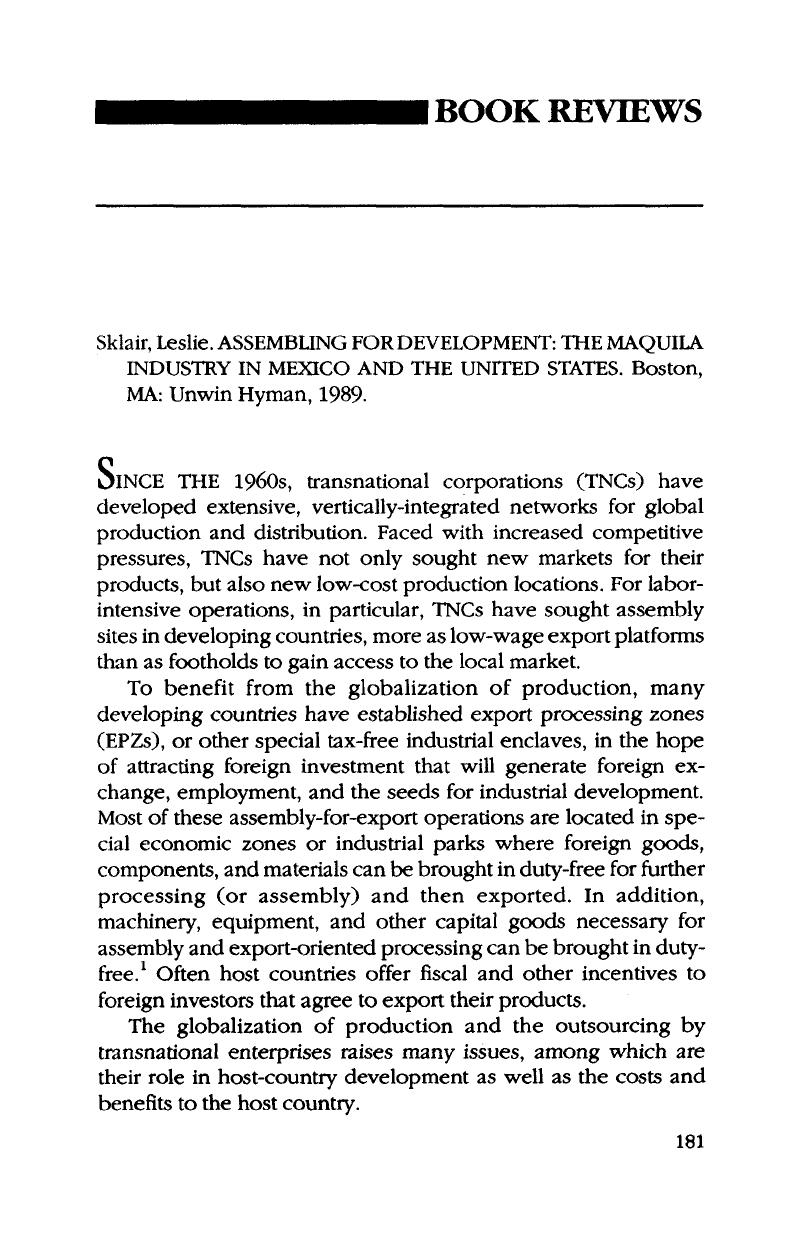No CrossRef data available.
Published online by Cambridge University Press: 02 January 2018

1. In lieu of paying duties on imported materials, components, and machinery, a bond usually is posted which is refunded when the items leave the country; hence the term “in-bond” processing.
2. In Maquiladoras: Annotated Bibliography and Research Guide to Mexico's In-Bond Industry, 1980-1988 (San Diego, CA: University of California, Center for US-Mexican Studies, 1989), Sklair has expanded and annotated his book's already extensive bibliography to include additional materials from newspapers and magazines, official documents and political publications, and private-sector promotional materials.
3. Communication specialists are management representatives whose responsibility is, in addition to ensuring uninterrupted production and identifying workers suitable for promotion, to help maquila workers cope with family and personal problems and to organize social activities which bring the families of maquila workers into contact with the plant.
4. Based on a Portuguese word for a Chinese agent engaged by a foreign establishment in China to have charge of its Chinese employees and to act as an intermediary in business affairs.